The Best Films of 2024 (Keith’s List)
These are the films that made moviegoing exciting, moving, spooky, funny, tragic, and surprising in 2024.
Here’s what I’ve learned from years of making best-of lists: they’re unavoidably a snapshot of a particular moment, the result of a November/December rush to take in late-year releases, reconsider films from the earlier part of the year, and then sort them into some kind of order. I don’t just second guess old lists, I’m sure I’ll second guess this list the moment we hit the “publish” button. What’s more, feelings about films can shift within the year itself. Does the list below reflect the star ratings I assigned the movies I reviewed? I don’t know. Probably not. But it’s the list that felt right as I looked back on the past year and tried to consider what mattered, and what spoke to the moment. I think that’s the only way to approach projects like this. There’s no getting it right. There’s only getting it right for now.
As for trends, you could put together a double feature about kids coming to understand their parents, for better or worse, with Janet Planet and Good One. You could fashion a series of films with enigmatic endings. You could look at 2024 as a good year for veterans, thanks to some of the familiar names on the list. Or, alternately, see it as a good year for emerging filmmakers, thanks to all the first- and second-timers. Those seem a bit like stretches, however. It’s tough to shape a coherent narrative out of the year’s standout films, yet while the future of the movies, as ever this century, can seem a little iffy, the long list of “pretty good” to “undeniably great” films out of which I carved this shorter list stretched to almost seventy. But you’re not here to read about the also-rans. Here are the movies that defined 2024 for me (at least for now):
15. Evil Does Not Exist (dir. Ryusuke Hamaguchi)
Ryusuke Hamaguchi gives viewers much to puzzle over with his follow-up to Drive My Car via a film in which an attempt to build a “glamping” site becomes a flashpoint for a rural community resistant to change. A kind of environmental thriller in slow motion, Evil Does Not Exist creates an uneasy mood laced with black humor, changes perspective unexpectedly, and builds toward an unexpected ending that ultimately feels like the only way the film could end.
14. Janet Planet (dir. Annie Baker)
Playwright Annie Baker makes her directorial debut with a story set in a particular time and place—the shaggy bohemian fringes of rural New England in the early 1990s—that focuses on a pair of eccentric characters: single mom Janet (Julianne Nicholson) and her awkward daughter Lacy (Zoe Ziegler). But Baker’s unhurried film also finds the universal in those particulars as it depicts Lacy’s first steps toward finding a place for herself beyond the shadow of her mom’s outsized personality.
13. Hard Truths (dir. Mike Leigh)
Marianne Jean-Baptiste’s performance as Pansy, a bitter, abrasive, deeply depressed Londoner, plays at times like an attempt to break a movie’s ability to serve as an empathy machine. As the film opens, Pansy has reduced her circle to family members who have no choice but to spend time with her and it’s unclear why anyone else, including those watching the film, would want to. Yet this being a Mike Leigh movie and Jean-Baptiste being one of the greats, Pansy emerges as an unforgettable and fully, heartbreakingly realized character.
12. Furiosa: A Mad Max Saga (dir. George Miller)
It would be tough to top the non-step frenzy of Mad Max: Fury Road. For this prequel, focusing on the character of Furiosa (played at various points by Alyla Browne and Anya Taylor-Joy), director George Miller doesn’t even try. Furiosa has action scenes that can easily stand beside those of its predecessor but also lyrical, reflective moments that treat the wasteland Miller created with 1979’s Mad Max as a stage to explore questions about the nature of civilization and the meaning of storytelling. Furiosa’s financial performance suggests this is the last trip Miller will take to this world, but it’s a farewell that doesn’t leave behind much unfinished business.
11. All We Imagine as Light (dir. Payal Kapadia)
The opening moments of Payal Kapadia’s drama establish Mumbai as a place of many cultures and many stories. It’s a lovely bit of scene setting before All We Imagine as Light turns its focus to a pair of nurses (Kani Kusruti and Divya Prabha) from the region of Malayali as they try to find their foothold in their new home, or risk tumbling into loneliness and isolation.
10. Daughters (dir. Natalie Rae and Angela Patton)
One event, a Daddy Daughter Dance held at a Washington D.C. jail, serves as the focal point for this remarkable documentary but the film’s scope is much broader. Directors Natalie Rae and Angela Patton depict both the preparation and education required of the fathers and their daughters and what transpires after the dance, sometimes years later. Alternately painful and hopeful, the film captures a moment of connection with a clear-eyed sense of how fleeting it might be.
9. I Saw the TV Glow (dir. Jane Schoenbrun)
Jane Schoenbrun’s second feature depicts the ways pop culture can double as a mirror showing us what we can’t see for ourselves via the story of a pair of ‘90s kids named Owen (Justice Smith) and Maddy (Brigette Lundy-Paine) who becomes obsessed with a cult TV series called The Pink Opaque. (Think Buffy if it was made for Nickelodeon.) It’s disarming, sad, sometimes darkly funny, and filled with haunting imagery, as Owen struggles to tamp down a personal revelation that’s even more unsettling than the possibility that the episodic object of his obsession might be bleeding into the real world.
8. Nosferatu (dir. Robert Eggers)
Robert Eggers’ latest is a second remake of F.W. Murnau’s 1922 classic. The original was itself an uncredited adaptation of Dracula, which has, of course, itself been adapted and remade countless times. So why do we keep telling ourselves this particular story? This latest incarnation offers two answers: 1) There’s something awful and compelling about its depiction of women and sexuality that can be explored and potentially subverted and 2) Done right, it can work as a really, really spooky visual tour de force.
7. Between the Temples (dir. Nathan Silver)
Between the Temples is just another movie about a middle-aged widowed cantor (Jason Schwartzman) who reunites with his childhood music teacher (Carol Kane) and falls into a hard-to-classify relationship with her as they prepare for her long-overdue bat mitzvah. You know, one of those. Directed by Nathan Silver, the film is unruly by design, mirroring the chaos that sweeps into its protagonists’ world. Schwartzman has become one of the most reliable supporting performers around (look no further than other 2024 films for evidence) and excels here in a rare leading role. And though we might not have needed more evidence that Kane has a presence like no one else, she delivers one of the best, and most complex, performances of her long, oddball-filled career.
6. Do Not Expect Too Much from the End of the World (dir. Radu Jude)
It’s tough to describe Do Not Expect Too Much from the End of the World without making it sound off-putting and arch instead of like the deft, cutting satire that it is. Ilinca Manolache stars as Angela, an overworked production assistant in Bucharest who breaks up her sleep-depriving grind by posting TikTok videos as Bobita, an Andrew Tate-obsessed misogynist. Manolache created Bobita prior to making the film, her contribution to Jude’s collection of the frustrating, dehumanizing, unspeakably stupid, and potentially apocalyptic elements of 21st century life that includes road rage, racism, green-screen blockbusters, and corporate doublespeak. It’s a scream in more ways than one.
5. Good One (dir. India Donaldson)
Nothing much happens yet everything changes when Sam (Lily Collias, one to watch), a teenager at the far end of high school, joins her dad (James Le Gros) and his pal (Danny McCarthy) on a weekend hiking trip in India Donaldson’s striking debut. To call Good One a coming-of-age story isn’t quite right. It’s more the tale of awakening to the understanding that the world can be profoundly disappointing and that even those you love most can let you down—particularly if you’re a woman expecting support from a man.
4. Close Your Eyes (dir. Victor Erice)
Spanish filmmaker Victor Erice has made only four feature films since debuting with Spirit of the Beehive in 1973. Yet Erice’s latest, his first since the documentary Dream of Light over 30 years ago, suggests few other directors have as deep an understanding of what movies mean and how they can coil themselves around those who make and watch them. Just as Spirit of the Beehive’s young protagonist finds herself haunted by a film, so does the aging director Miguel (Manolo Solo), who hasn’t complete a film since the mysterious mid-shoot disappearance of his leading man (José Coronado) in 1990—an incident he’s compelled to revisit after being approached by an Unsolved Mysteries-like TV series. The ensuing search doubles as an exploration of what a generation of Spanish artists contributed to their moment of history and an elegy for that moment’s passing—and perhaps the passing of film itself.
3. Anora (dir. Sean Baker)
Sean Baker’s directorial career is filled with stories of outcasts, also-rans, and other marginal figures. Anora, in which Mikey Madison plays an exotic dancer who marries the spoiled son of a Russian oligarch, is no exception. And, like Baker’s other films, it’s at once a work of tremendous empathy, a barometer for the current moment, and a wild ride. Madison’s performance serves as the engine pushing it forward to one of the most haunting finales in any film this year.
2. The Brutalist (dir. Brady Corbet)
Given its ambition, Brady Corbet’s third feature had to be great to succeed at all. Working on a large canvas—in scope, theme, and running time—Corbet uses the story of a Hungarian-Jewish architect (Adrien Brody) brought to the United States in the aftermath of World War II to explore the gulf between the story we tell ourselves about America and the reality of the nation itself.
1. Nickel Boys (dir. RaMell Ross)
The final line of Nickel Boys, RaMell Ross’s adaptation of Colson Whitehead’s remarkable 2019 novel, has been echoing in my head ever since I saw the film back in November, resonating with both the story the film tells and the moment in history where we now find ourselves. If you haven’t seen the film—and at this point most of our readership hasn’t had the chance—just file that away for later. As daring as it is moving, RaMell Ross’s first-person approach blurs the lines usually separating viewers from protagonists in telling a fact-inspired story about two Black residents of a Florida reform school (though the word “school” doesn’t really apply) and the abuses they face as the civil rights struggle unfolds outside the walls that hold them in.
Honorable Mentions (in no particular order):
Dune: Part Two, Challengers, The Beast, A Real Pain, The Substance, Sing Sing, Ghostlight, Blitz, My Old Ass, The Wild Robot, Babygirl, Rebel Ridge, Juror #2, September 5, Queer, Love Lies Bleeding, Civil War, Heretic, Red Rooms, A Quiet Place: Day One, Girls State, Hit Man, Ghostlight. How to Have Sex, The First Omen, Cuckoo, Longlegs, The Fall Guy, Girls Will Be Girls, The Remarkable Life of Ibelin
Bonus mentions: A pair of terrific, technically 2023 films that didn’t receive a proper release until 2024: La Chimera and Perfect Days.
Performance of the Year: Carol Kane, Between the Temples
Why Kane? Because in all my years of moviegoing, I can only think of a handful of moments in which I could feel the entire audience have its breath taken away collectively. Usually they involve noise or violence: Clint Eastwood’s speech at the end of Unforgiven or the first frog falling from the sky in Magnolia. Without giving too much away, Between the Temples has one of those moments and, perhaps aptly, it’s about listening and paying attention as the beginning of understanding. With just a few words, Kane makes her character the center of gravity. It’s like a magic trick, and one I don’t think any other actor could pull off nearly as well.
Scene of the Year: Anora’s final moments
If you’ve seen the movie, you know why. It’s hard to determine what each character is feeling as those windshield wipers beat out that incessant rhythm or what will happen next remains. It is, in other words, a perfect ending.
Reason for Hope: Thinking small
It’s probably too soon to start talking about an American indie renaissance (and probably impossible to define what “indie” means in the era of Neon and A24). Yet films like Ghostlight, Sing Sing, My Old Ass, Anora, Good One, I Saw the TV Glow, A Real Pain, Between the Temples, Janet Planet, and other films all suggest there might be some new vitality in the indie world. We can’t make it 1992 again, but maybe 2025 will continue to capture some of its spirit.
Reason for Despair: When good films tank or get disappeared
Which is more depressing: that a perfectly charming blockbuster like The Fall Guy didn’t connect with moviegoers or that Clint Eastwood’s very good, very Eastwoodian legal thriller Juror #2 only played in 12 theaters in the suburbs of Topeka, Kansas and Macon, Georgia before quietly plopping down on Max? 2024 offered a string of “this is why we can’t have nice things” moments. Those two stung the hardest.
Special effect: That Undead ‘Stache
One of the smartest marketing decisions around Nosferatu was to keep Count Orlok out of sight. That made the vampire’s amazing mustache—which the film keeps in the shadow for quite a while—all the more amazing.
Most Anticipated Film of 2025
I jumped the gun on this one with last week’s Open Question, so paid subscribers already know I’m looking forward to Mickey 17. So I’ll reveal my least anticipated film: The Passion of the Christ: Resurrection. My head hurts already.
Coming Thursday: Scott’s list.




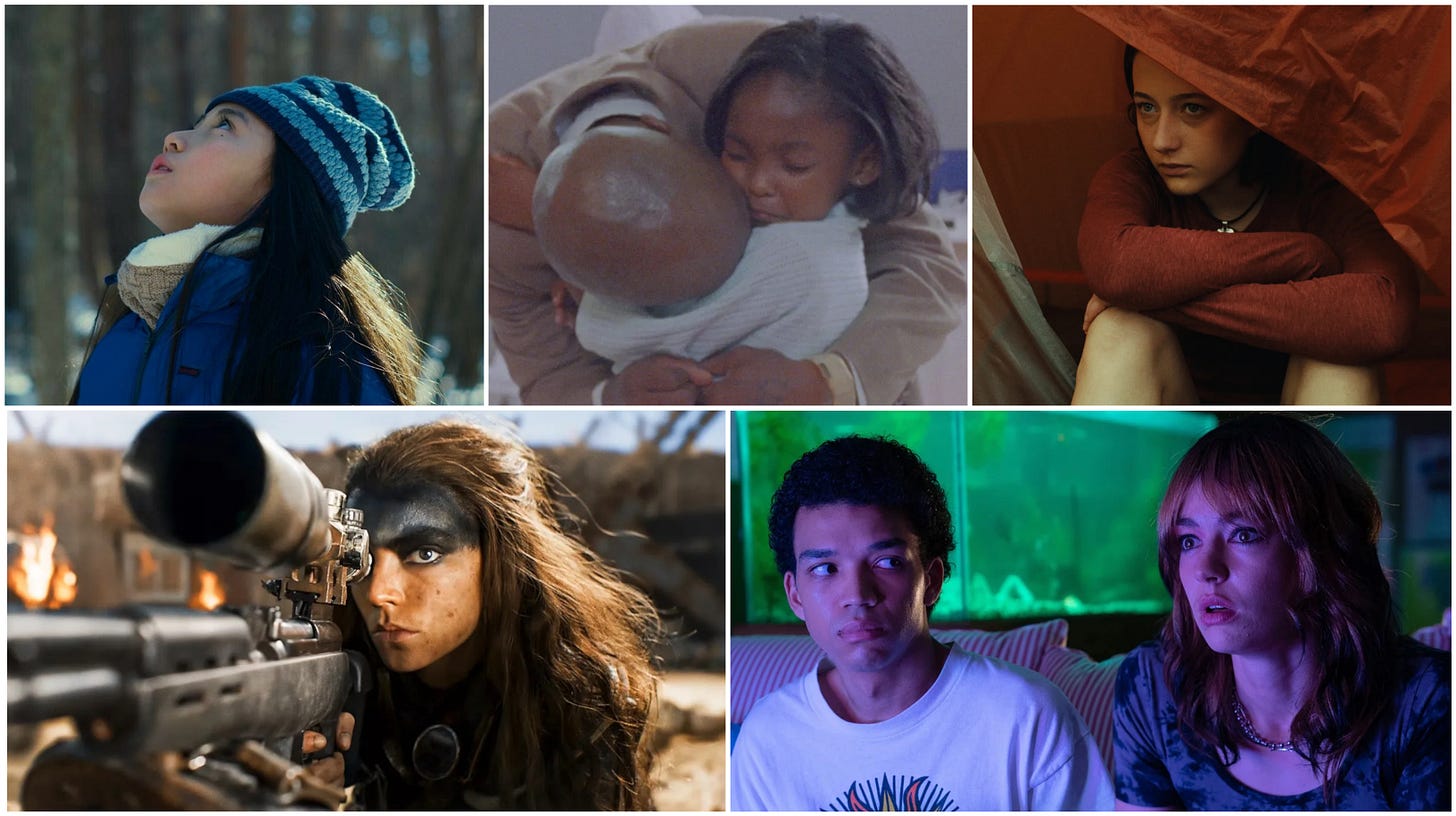
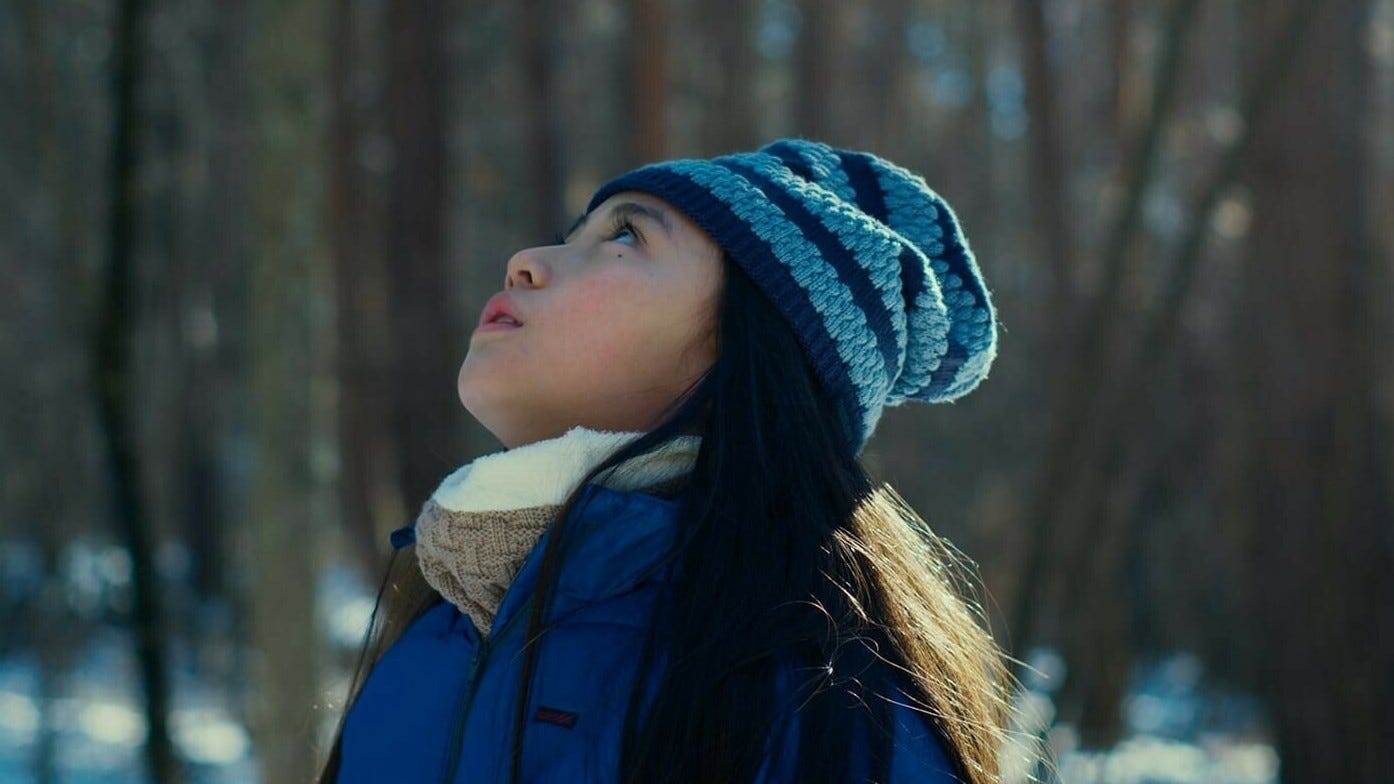
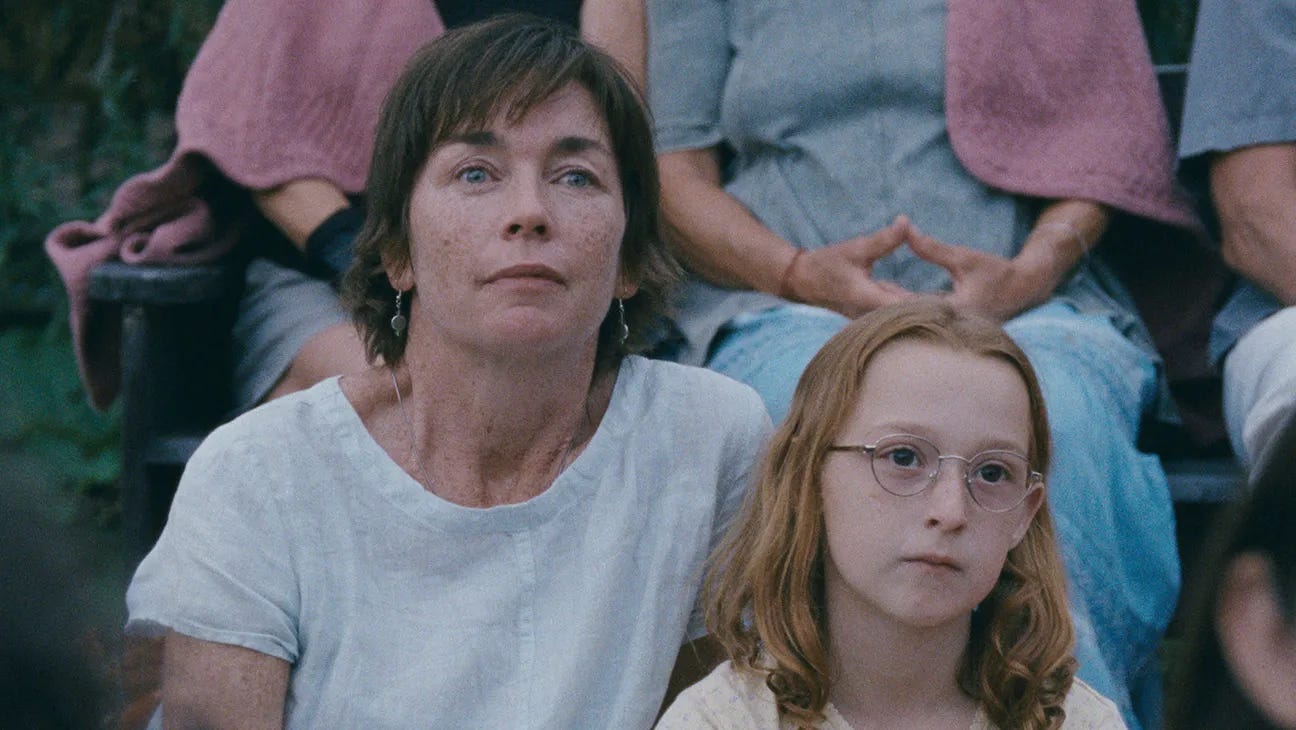
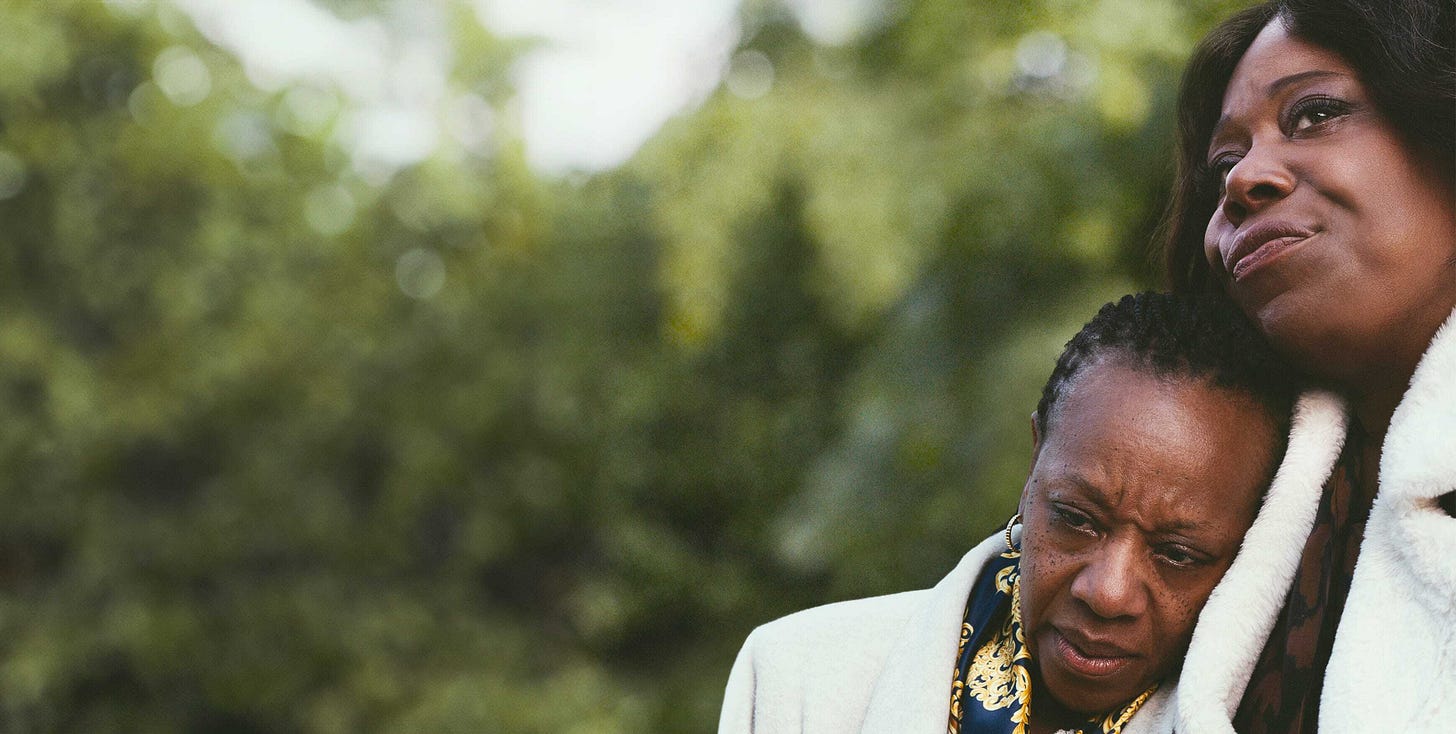
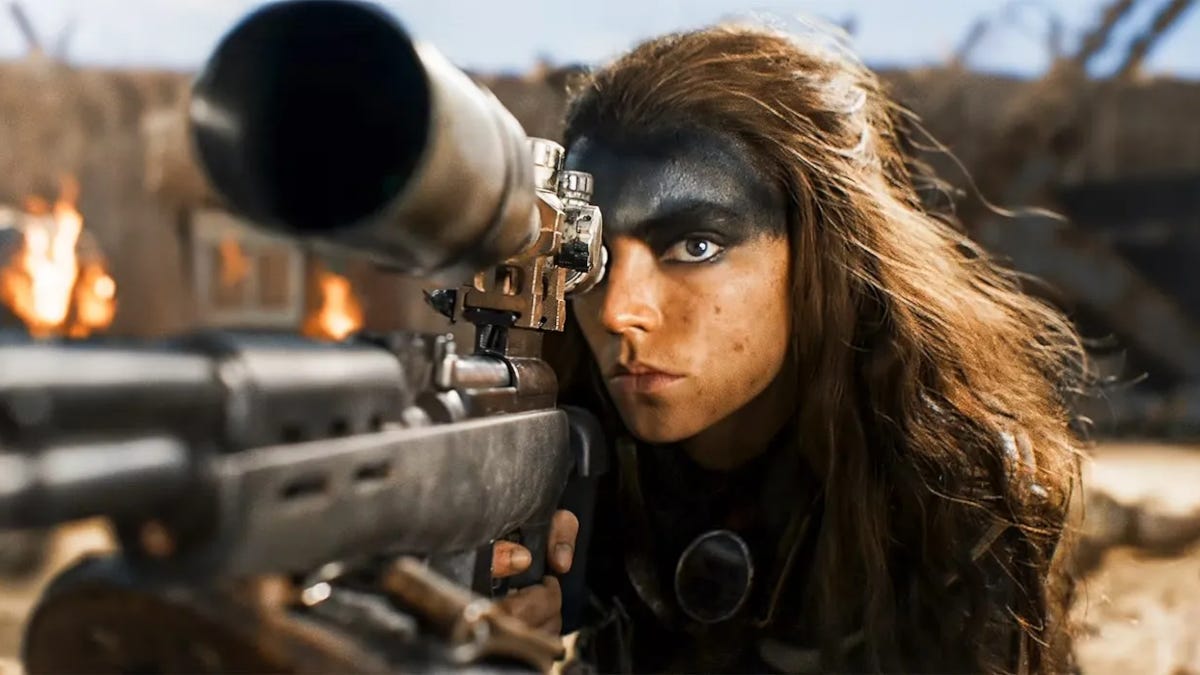
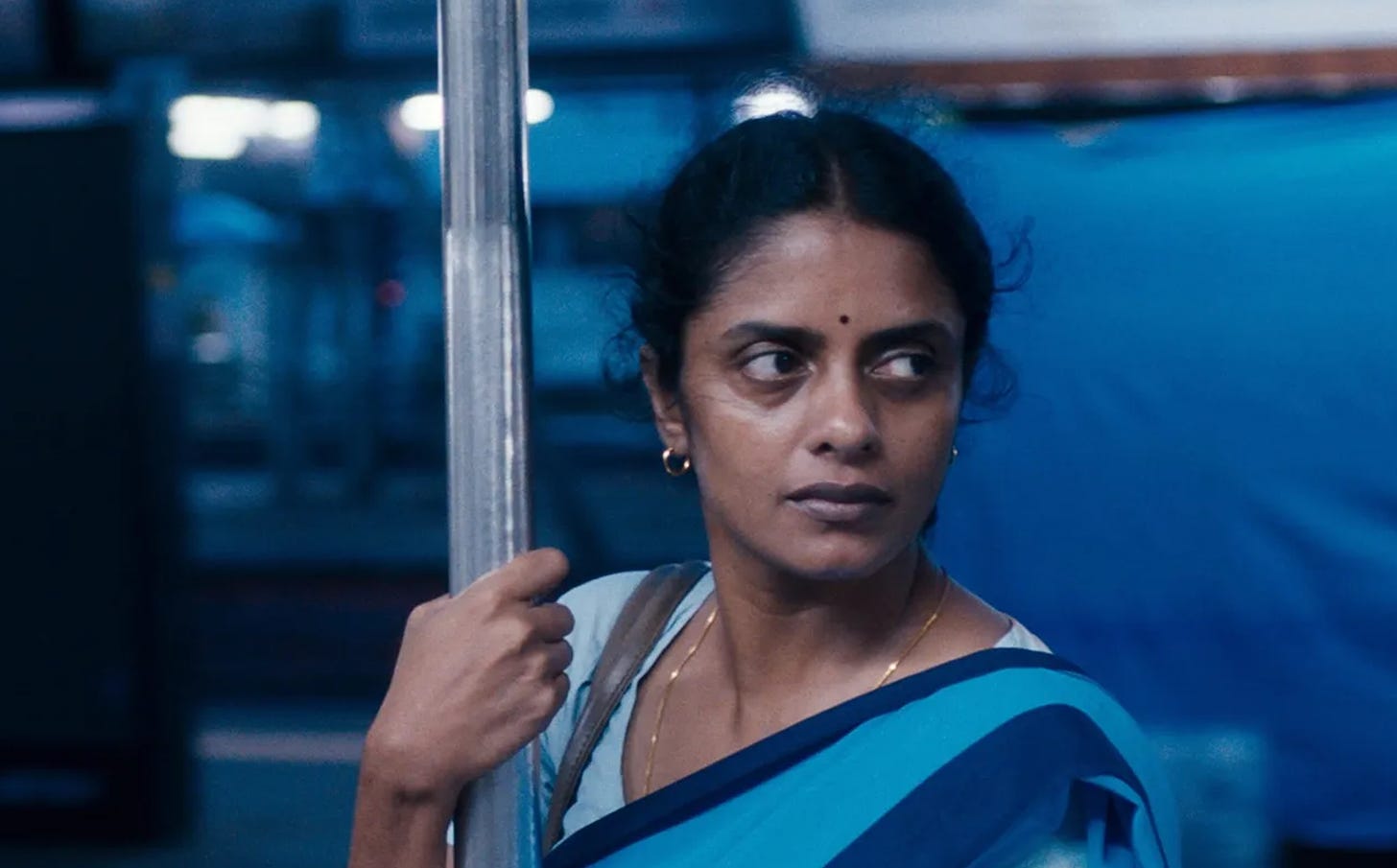
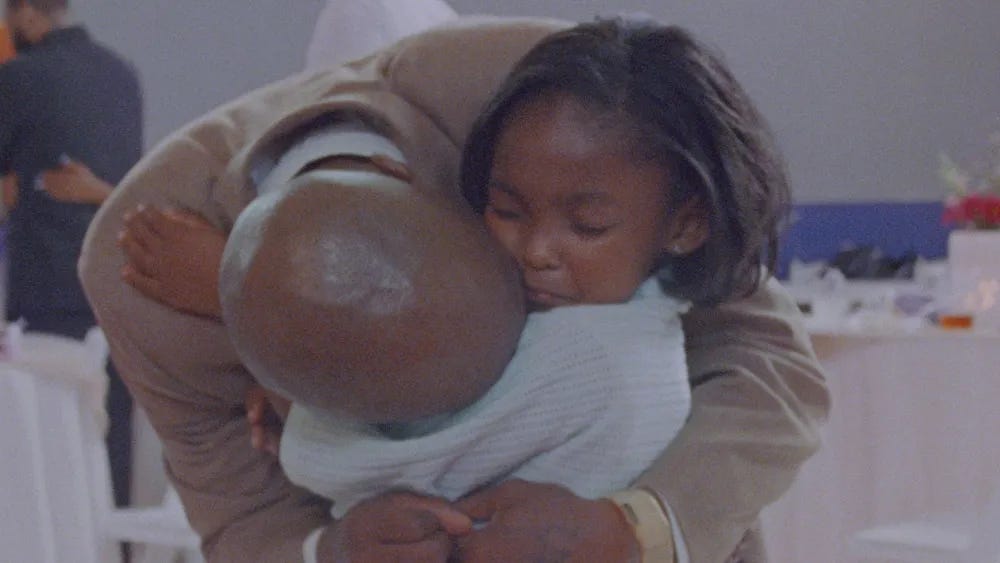
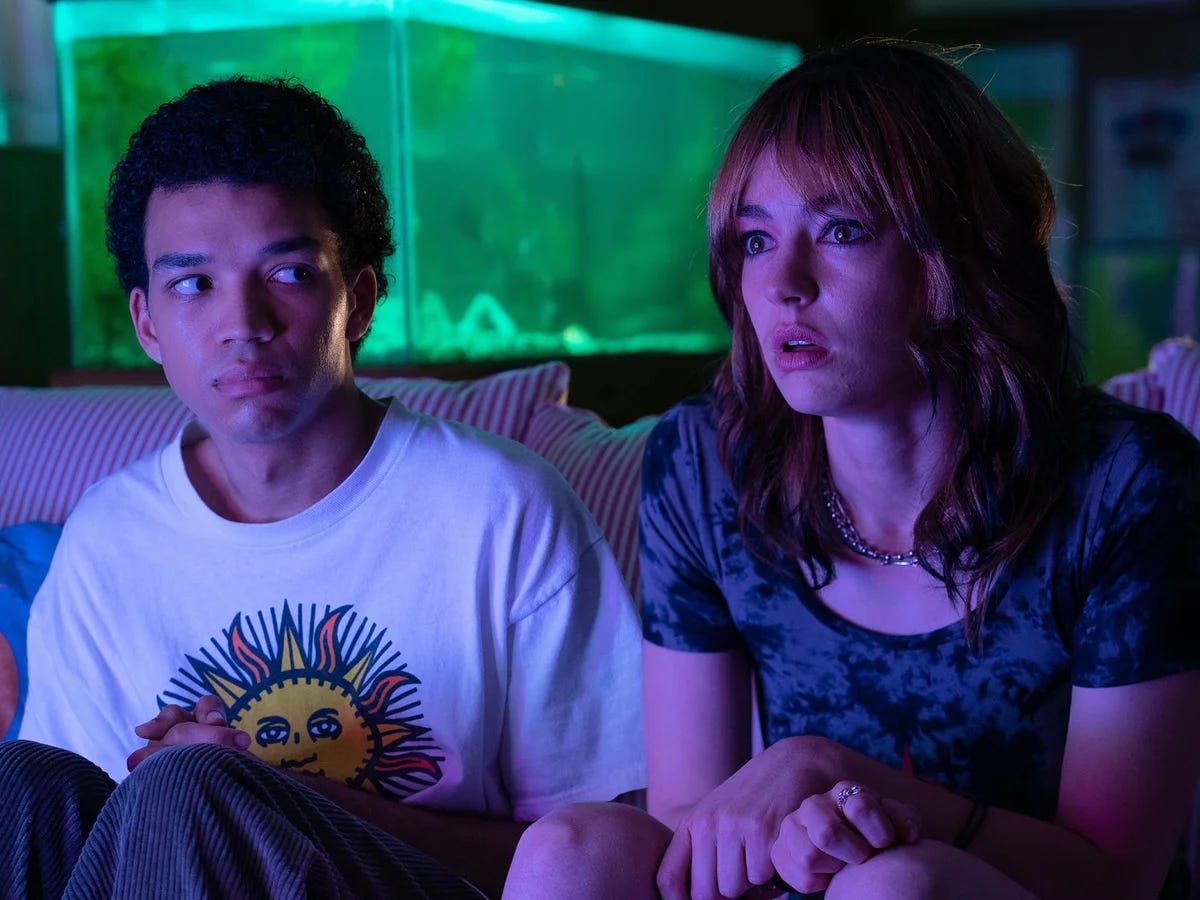
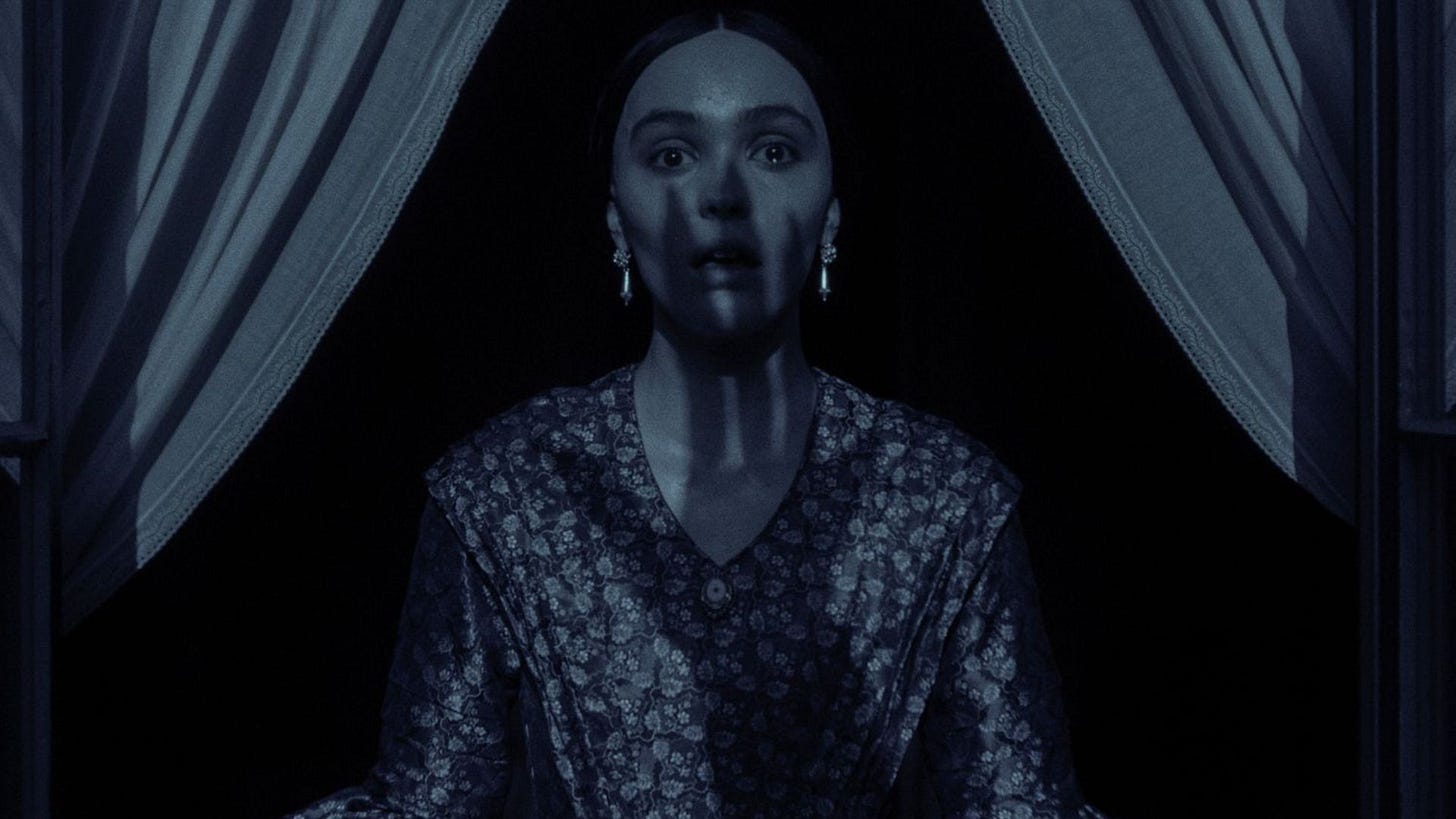
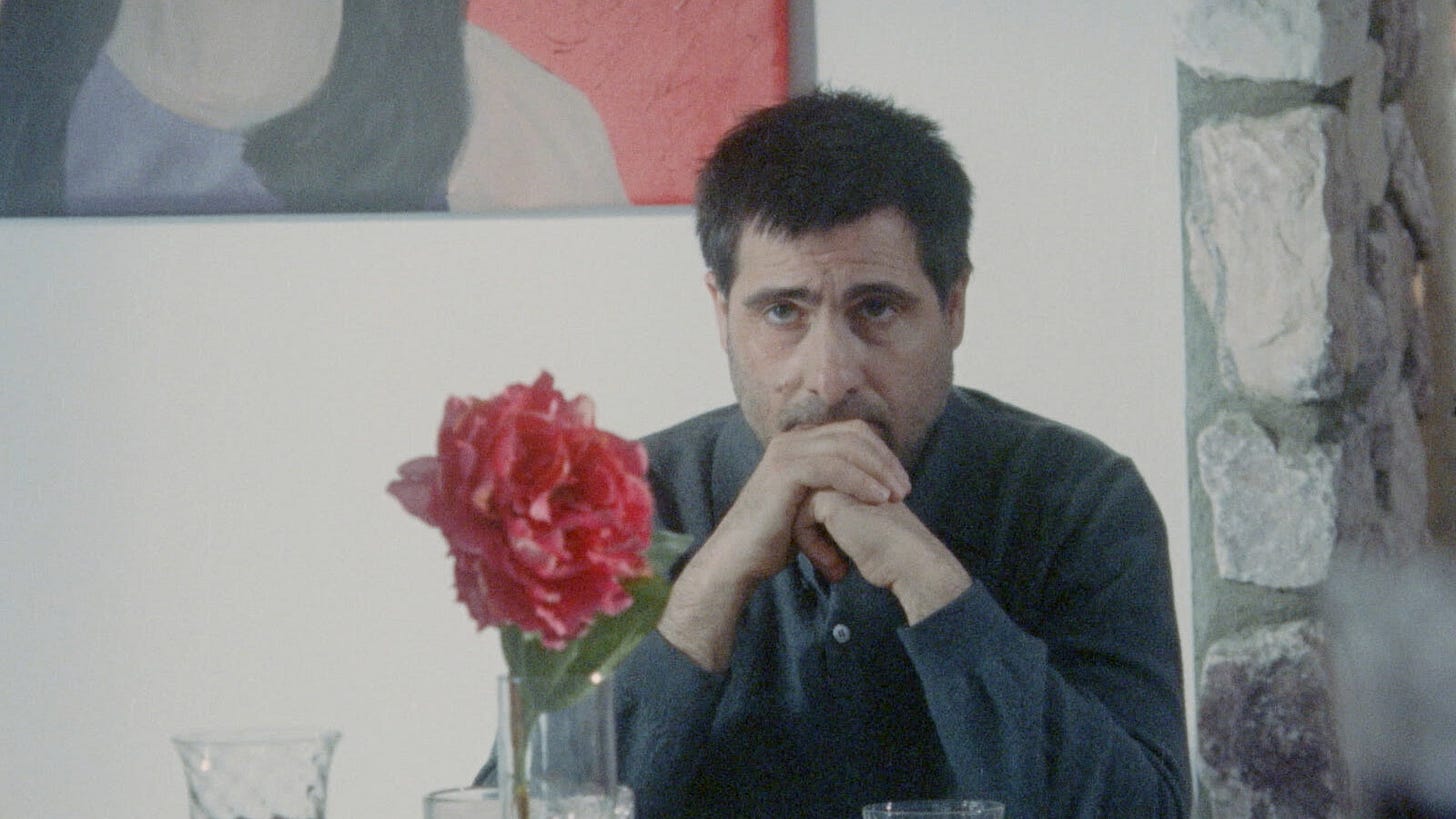

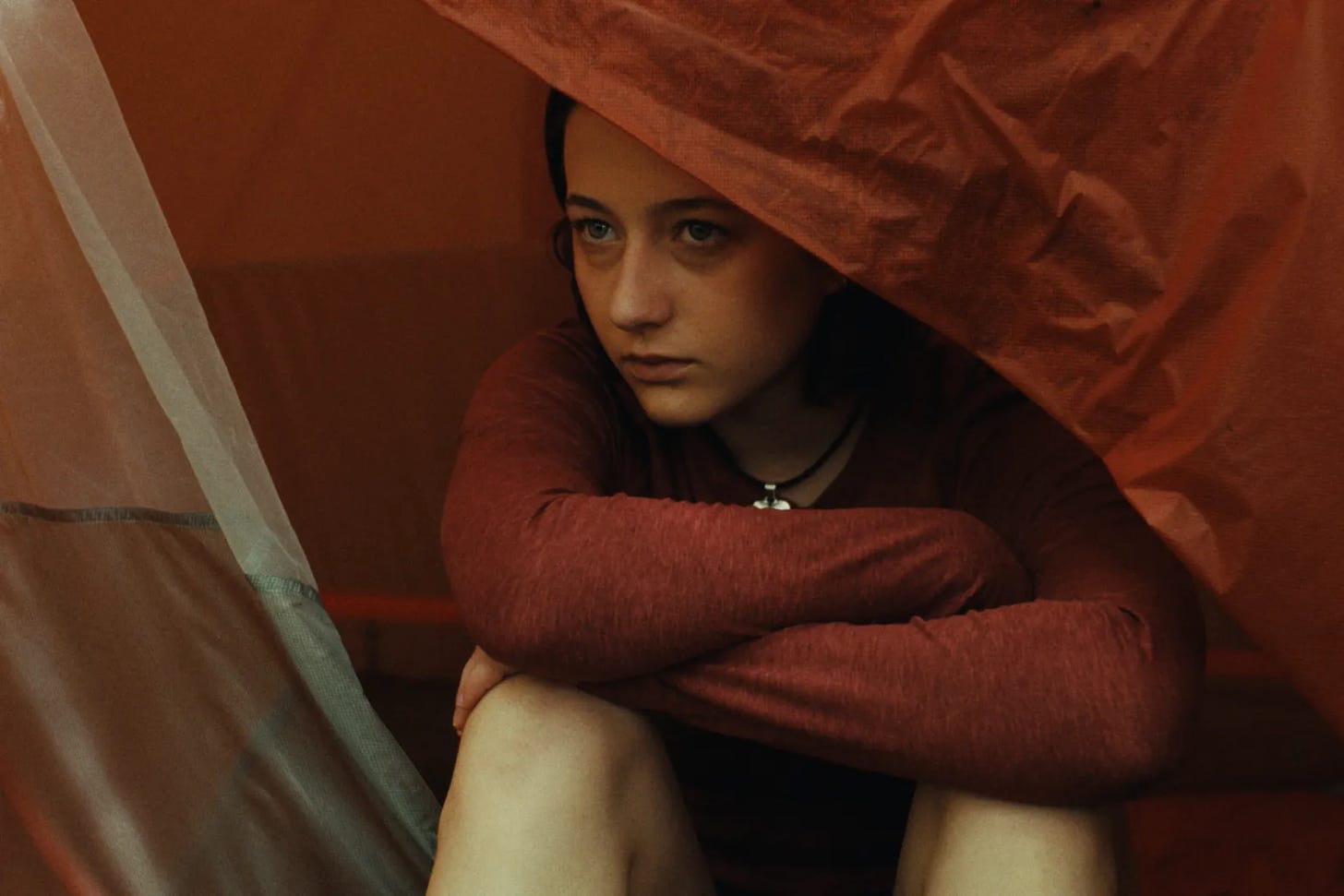
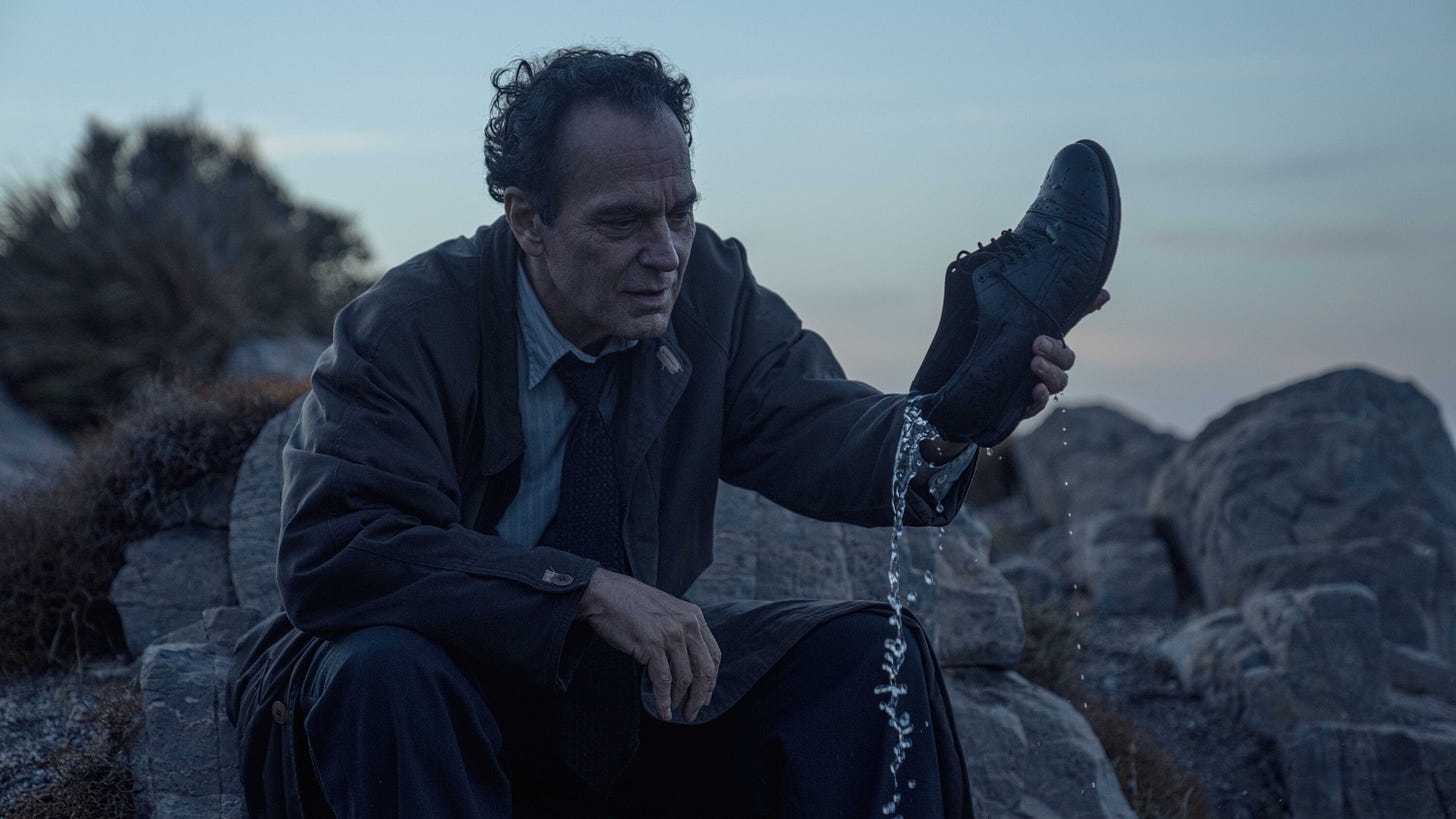
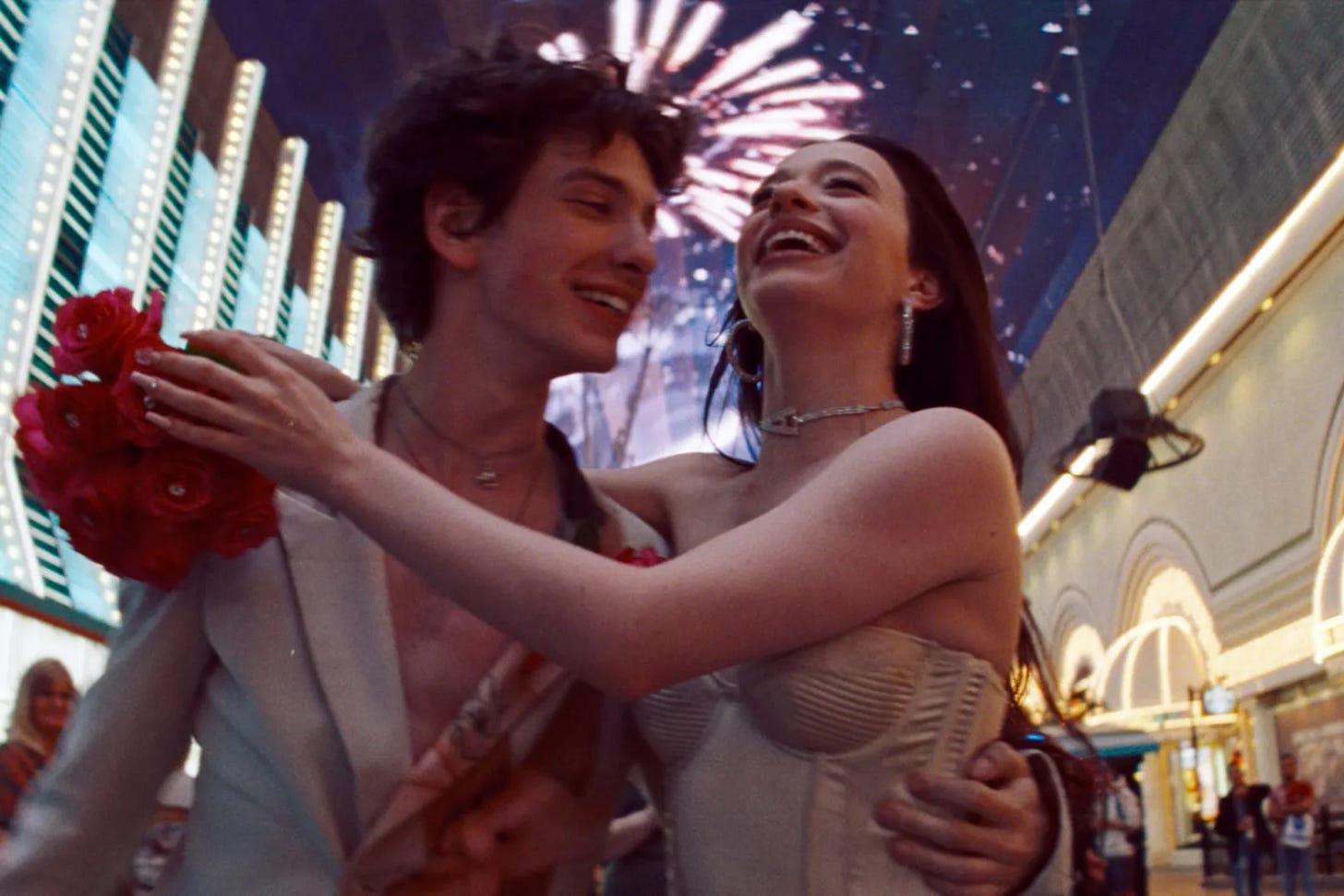
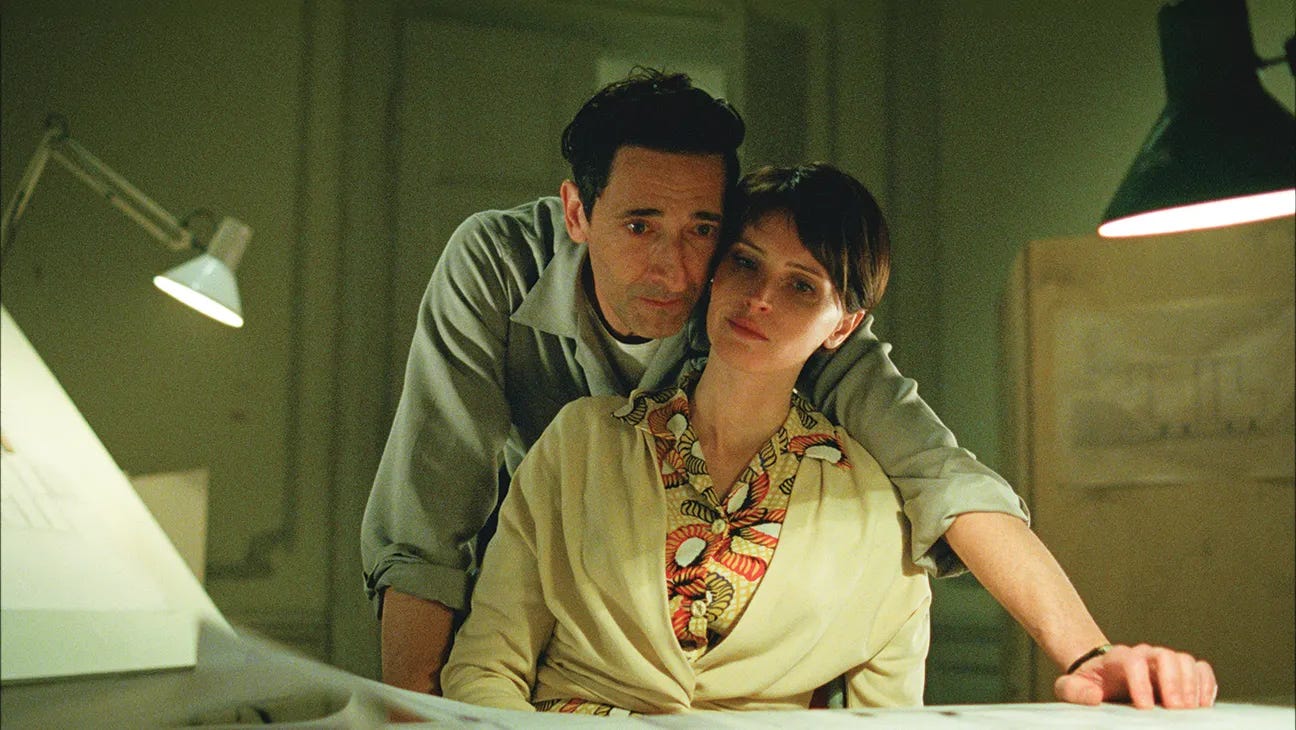
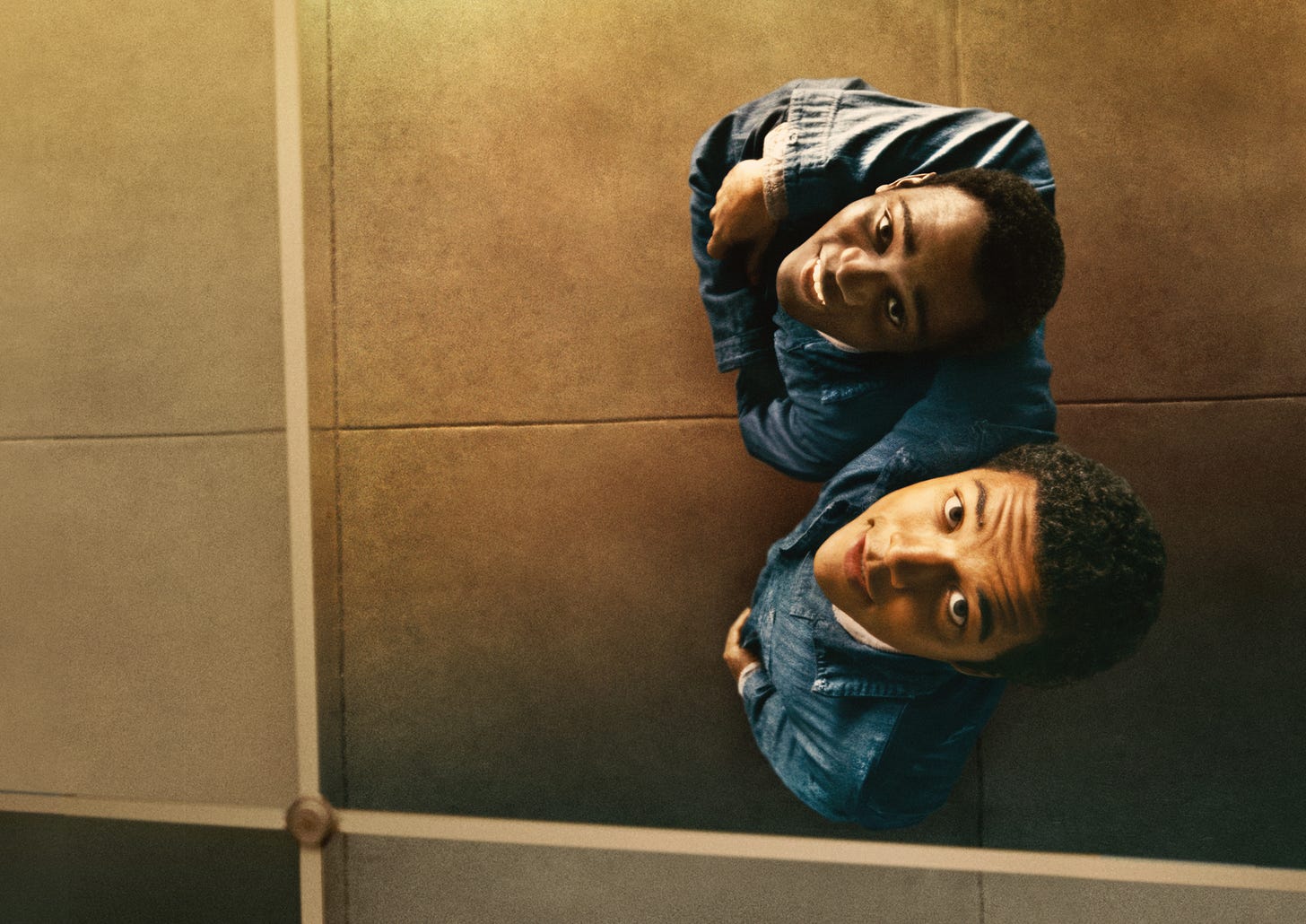
Nice choices, but special thanks for putting FURIOSA on there. Like you point out elsewhere, there's no shortage of "that deserved better" stories in the industry. This was a rare movie I paid to see twice in the theater. For it to underperform while a guy like Zaslav is running things stings more and it'll cost us THE WASTELAND. There are a number of movies that hit me harder this year, but this one has a special place. After reading Kyle Buchanan's book about the making of FURY ROAD, it's a miracle anything makes it out of the system intact, so we can't get greedy. But this deserved better.
Added THE REMARKABLE LIFE OF IBELIN to the HMs. Not a perfect movie, but one I think about a lot.